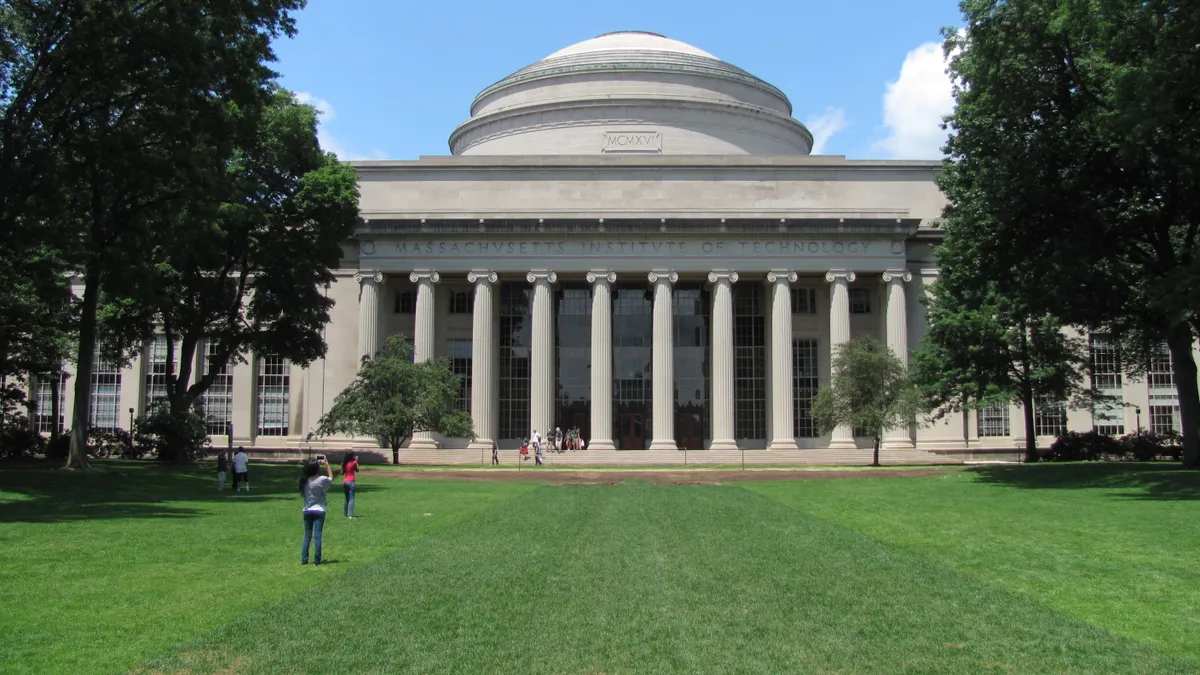Highlights
Breaking barriers:
MIT aims to dismantle divisions in higher education through investment in a $1 billion, interdisciplinary computing college with a focus on artificial intelligence (AI).
Deep donor pockets:
The effort is backed by a $350 million donation from Blackstone CEO and co-founder Stephen Schwarzman.
Outlook:
MIT's approach to exploring AI could become a model for other colleges, embedding it into core or complimentary curriculum across all fields of study.
Colleges and universities are ramping up their investments in technology, whether through adding courses and programs, implementing institution-wide systems or doubling down on research. But MIT's investment in a new computing college stands apart in scope and scale.
The MIT Stephen A. Schwarzman College of Computing, named after its biggest donor, will blend growing technology fields such as computer science, AI and data science with the humanities and social sciences. The university has described the investment as "the most significant reshaping" of MIT in more than 60 years. The college will open next fall, with a dedicated building slated for completion in 2022.
MIT President L. Rafael Reif told The New York Times the goal of this venture is to "educate the bilinguals of the future," meaning those who are adept in traditional disciplines such as chemistry, politics and linguistics where computing can also play a role. Coupling these skills will allow AI to advance those fields and vice versa, the college contends.
Along with building a computing headquarters on its campus, MIT will create 50 new faculty positions. Half will be appointed within the college, while the other half will split their appointment with other departments so they can exchange their insights between fields.
"Computing is no longer the domain of the experts alone," Reif said in the university's announcement. "It's everywhere, and it needs to be understood and mastered by almost everyone. In that context, for a host of reasons, society is uneasy about technology — and at MIT, that's a signal we must take very seriously."
To stem these rising anxieties, MIT said, the college will also focus research and instruction on policy and ethics to ensure computing and AI developments support "the greater good." This is proving especially critical in the workplace. Experts predict machines will significantly change the dynamic of the workforce by wiping out millions of positions while simultaneously creating even more.
"Computing is no longer the domain of the experts alone. It's everywhere, and it needs to be understood and mastered by almost everyone."

L. Rafael Reif
President, MIT
The planned MIT college is unique in its heavy interdisciplinary focus. Other institutions have made similar moves to expand their tech programs, but few have had the same focus on cross-collaboration.
It has been a growing area of interest, however. The University of California, Berkeley recently announced a new data science division that connects students and faculty across departments and fosters collaboration between fields, and Google said it will grant $25 million to universities, nonprofits and businesses whose work in a range of fields has a positive social or environmental impact and could benefit from the use of AI.
MIT's significant investment and restructuring is a sign to other colleges that an interdisciplinary approach to technology investment is key to staying competitive. And it will likely help accelerate higher education's measured approach to the current digital revolution.
The new college may also help the U.S. gain a competitive edge over other countries. Most experts agree the U.S. leads China when it comes to AI, but the latter is quickly closing the gap. China has made a commitment to become a world leader in AI by 2030, while the Trump administration has been far less coordinated than the previous administration in its approach to the matter.
Regardless of the federal government's position on AI, MIT's investment suggests colleges and universities are aware both of the need to be competitive in the field in order to attract students in an increasingly international competition for talent and of what addressing that need will entail.
"Our hope is that this ambitious initiative serves as a clarion call to our government that massive financial investment in AI is necessary to ensure that America has a leading voice in shaping the future of these powerful and transformative technologies," Schwarzman said in the university's announcement.
Read More
-
MIT plans $1B computing college, AI research effort
By James Paterson • Oct. 16, 2018 -
4 ed tech trends colleges should be ready for
By Hallie Busta • Nov. 5, 2018 -
Free tool allows institutions to easily analyze, compare IPEDS data
By Shalina Chatlani • May 2, 2018












